Question
 Shadow
Shadow
Hi, I know you specialize in syrians, but the dwarf specialist is on vacation and I desperately need help. I have a dwarf hamster (I think they're called blueberry dwarfs?) A small handful of weeks ago, I noticed some fur missing on her stomach. Now the fur is missing on her two back ankles. She has been constantly itching.
I looked online and found the Listerine/witchhazel/water treatment spray mix. I sprayed it on her and she seems to be itching a little less but still itching. She also seems agitated (in body language). I am not sure if there's something else I can do to help or what this might be.
I thought it might be mites but I have looked a lot and cannot see any moving dots. Nothing is wrong with her ears or genitals that I can see. Her urine and feces appears completely normal.
She is eating normally. However, I have noticed that I haven't seen her drinking any water. She was recently moved to a new cage with a new water bottle type and location, so perhaps this is contributing (the itching/hair loss started before the new cage) Her bedding and food have not been changed. She is not very old, though she is at least 1, since we got her a year ago. When we received her, we were told she was very young (and she appeared to be so).
I love my hamster very much (her name is Shadow) and if you have any advice on something else to try, or at least what she might have it would be appreciated. Attached is a picture of her (just for reference, in case I haven't described the breed correctly) It's blurry, I apologize, but you get the idea.
Thanks!
Alex
AnswerHi Alex
Just as a follow up - I've heard from Beaphar. Their small animal anti parasite medication is only for Syrian hamsters over 50g and unfortunately they don't have any medications for hamsters weighing less than this. They suggest contacting a vet for advice, but in my experience, vets are reluctant to treat dwarf hamsters who have mites with ivermectin purely because of the dosage dilemma as to what is safe for such a tiny animal. Hopefully you will find some alternative treatment.
Regards
Sheila
Hi Alex
This is quite a difficult question to answer - firstly because it is hard sometimes to know what is wrong without actually seeing the hamster, and secondly, that whilst this could be mites, this is difficult to treat in dwarf hamsters.
Fur loss can occur for a number of reasons - mites is an obvious one, but also they can shed fur due to hormonal changes, old age, allergic reaction or illness. The fact that she is itching would suggest to me that this is some sort of parasite, however, whilst this is easy to treat in Syrian hamsters with a drug called Ivermectin, because dwarf hamsters are so small it is difficult to know what safe dose can be used. You only need a drop for a Syrian and this is usually applied externally to the back of the neck and repeated a few weeks later. With a dwarf you would need considerably less. A company called Beaphar make a small animal antiparasite medicine 'Beaphar Anti-Parasite Spot On 25' which they say is suitable for golden hamsters and also Siberian hamsters - however on another area on their website they say that it is only suitable for hamsters over 50g which I suspect Shadow isn't. I've emailed them to find out if they have any products that are safe to use on such small animals.
Another reason why hamsters lose fur and itch is due to ringworm. This isn't a worm as such, but a fungus - whilst some vets will send off samples of fur it can take several weeks for the results to come through and it is always worth starting treatment immediately if a vet thinks it is this, as this is transferable to humans. When a hamster has this they have bald areas of skin that expand over their body. Any affected nails become distorted or weakened. Some types of ringworm fluoresce brightly under ultra violet light. In cases of this a drug is often given for 4 weeks and the hamster would need shampooing until it has gone.
If this was a hormonal problem she would just go bald and probably not be itchy - in cases like this Evening Primrose oil can be added to the food to try and help. I note that you have not changed her bedding to a different brand, but you do need to be careful that any woodchip is safe for small animals. Sometimes it is made from pine, cedar or cypress all of which contain a volatile oil called thujone and this can cause skin irritation.
I would not risk applying any parasite medication unless it is confirmed that it is safe for a dwarf hamster otherwise you could make her ill.
If the condition gets worse or continues then it would be adviseable to get this checked by a vet. Also, if her general behaviour starts to change, just in case it does need treating by them.
If it doesn't seem to be getting any worse, but there are still bald spots etc. you could perhaps try some aloe vera - either direct from a plant if you have one, or you can buy it in various forms that are safe if ingested - there are some companies who produce products especially for animals. Also, you can buy a cream in the pet shop called teatree cream which is a natural antiseptic and could be applied if necessary if her skin looks sore - check the tube instructions to make sure it is safe for dwarf hamsters however.
In terms of her water drinking - usually you notice a hamster drinking when there is a problem, otherwise they tend to consume small amounts of water and if her food is supplemented at all with fresh vegetables she would be getting some moisture from this. If you are worried that she isn't drinking, you can always add a few drops of blackcurrant juice to her water bottle as hamsters love the sweetness of it and this often encourages them to drink.
Sorry I can't give you a definite answer as to what is wrong or what to do but I hope this helps you. If you are in any doubt about her, or what to use then it would be worth consulting a vet who specialises in small animals.
Regards
Sheila


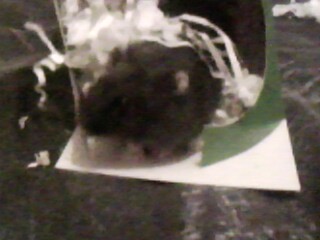 my dwarf hamster is acting strange
Question
Buttons
ive had her for almost a year her name
my dwarf hamster is acting strange
Question
Buttons
ive had her for almost a year her name
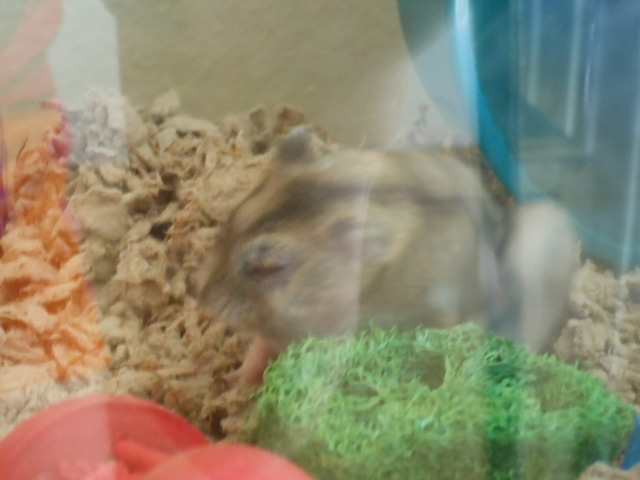 Eye infection?
Question
Side view front view
One of my dw
Eye infection?
Question
Side view front view
One of my dw
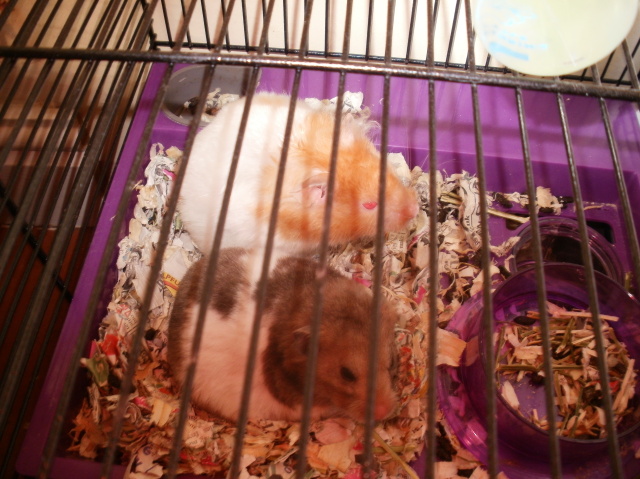 hamster cadge
Question
my hamsters
what should the normal hamster cad
hamster cadge
Question
my hamsters
what should the normal hamster cad
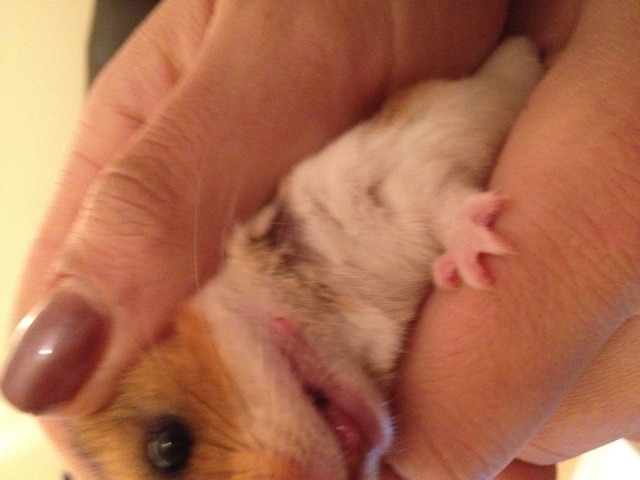 Syrian Hamster - Growth on corner of mouth
Question
Hamster - Growth on Mo
Hi,
My four mon
Syrian Hamster - Growth on corner of mouth
Question
Hamster - Growth on Mo
Hi,
My four mon
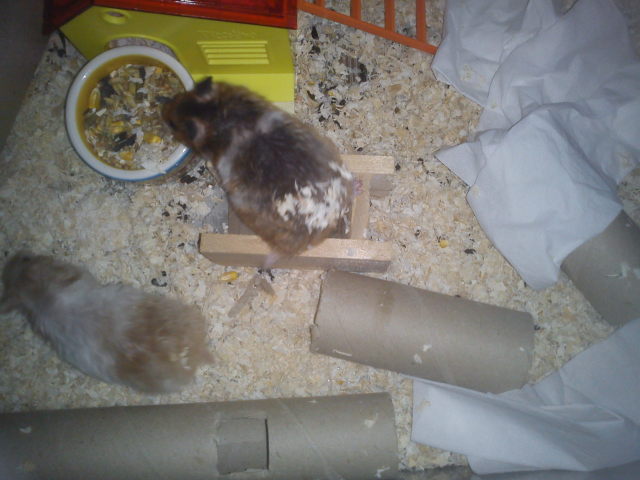 hamster fight
Question
hamsters
i already have 2 syrian hamsters (bot
hamster fight
Question
hamsters
i already have 2 syrian hamsters (bot